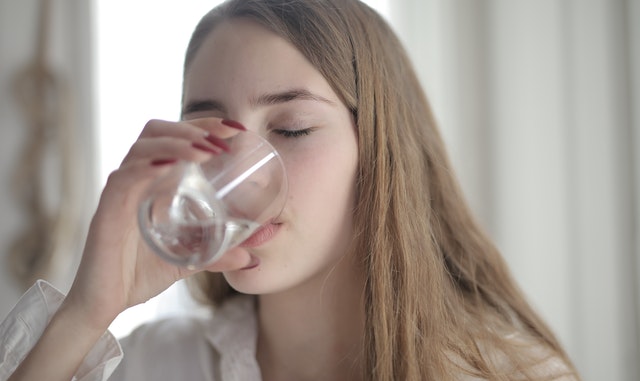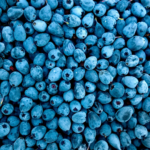Do you have a thirst? The remainder of the United States is as well. According to a poll conducted by Quench, a filtered water system provider, about 80% of working persons self-report that they don’t drink enough water.
Water makes up almost 60% of the human body and is required for practically all biological functions. People can easily lose water, especially if they are sick, exercising a lot, or it is extremely hot outside.
The amount of water you should drink varies on your personal preferences, but health experts recommend eight glasses per day as a general rule, with males drinking up to 15 glasses and women drinking up to 11.
And if you’re thirsty, you’re already dehydrated, according to study. There are, however, a variety of other indicators that you require additional fluids in your life.
Your Skin Is Rough And Flaking
One of the many ways we lose water is through our epidermis. We lose water when we sweat, and we lose water when it’s cold because the air is drier and sucking the moisture from our bodies. More water may be necessary if your skin is rough, cracked, or flaking. Redness or tightness are other indicators. If your skin is always chilly and clammy, you may be dehydrated, which is a symptom of diabetes, so consult your doctor.
Pinch a small portion of your cheek if you wish to check for dehydration. You should drink more fluids if it wrinkles.
Your Urine Is Dark Yellow
Keep an eye on the color of your urine to see if you’re dehydrated. If you’re looking more like a vivid gym floor color, it’s time to add a few glasses of water to your daily routine.
You’re Constipated
Water is required to breakdown food and carry it through our digestive systems. We may have fewer or small, lumpy bowel movements if we don’t get enough of it. The cells in our intestines take water from the food we eat when our bodies are dehydrated and turning it to waste. This removes it from the discarded food, leaving them hard and dry.
Constipation is more common when our water balance is disrupted, according to research. Children who lost fluid and restored it in the trial had a lower rate of constipation.
Irregular Blood Pressure
Because your blood is composed of 55% liquid, your blood volume may fall if you are dehydrated. What difference does it make? Your blood pressure is elevated. Dehydration is listed as a cause of low blood pressure by the American Heart Association. This might cause dizziness and possibly passing out.
Low blood pressure isn’t the only issue. Hypertension, which is caused by elevated blood pressure, can also be induced by dehydration. When cells want water, the brain can intervene and send a signal to the blood arteries to constrict. This is the source of high blood pressure.
You’re Very Tired
Do you have a good night’s sleep? It might not be enough if you’re dehydrated. According to studies, even if you are well rested, a lack of water might make you feel exhausted, lethargic, and tired. Low blood pressure can also cause extreme exhaustion.
Drinking extra water may help people with chronic fatigue syndrome feel better. The heart has to work harder to supply oxygen and nutrients to the muscles and organs when blood volume lowers. It also channels blood away from the skin and onto more vital organs. This increases the body’s internal heat, which can cause muscle cramps and exhaustion as the body tries to control itself.
You Have Headaches
According to a study of 25 young women, even mild dehydration can cause pain, with a 1.3 percent loss in hydration causing pain. This symptom, like weariness, can be linked to low blood pressure.
Your Mood Is Off
What percentage of your brain is made out of water? It’s a whooping 70%. Dehydration has an effect on the brain. According to studies, you may be less alert and unable to concentrate, especially when driving. Dehydrated people are more likely to be depressed, as water deficit in brain cells reduces energy supply. Dehydration causes anxiety, tension, and low mood fluctuations, as well as confusion, irritability, and decreased executive function, according to studies.
You Have a Lower Pain Threshold
The brain is also in charge of neurological reactions to pain, and studies have shown that dehydration makes the brain more sensitive to pain. Because fluids lubricate the joints and provide a cushion between the bones, arthritic pain is exacerbated when you are dehydrated. This cushion absorbs shock while also providing joint nutrients. Water accounts for over 80% of joint cartilage.
Thankfully, dehydration can be readily remedied by simply drinking some water. It isn’t even necessary for it to be water. Fruits and juicy vegetables, as well as non-caffeinated and non-alcoholic liquids, can help you stay hydrated.
While drinking extra water will help in most cases, if your symptoms grow severe or include stomach cramps, fainting, seizures, heatstroke, or hallucinations, get medical attention.










